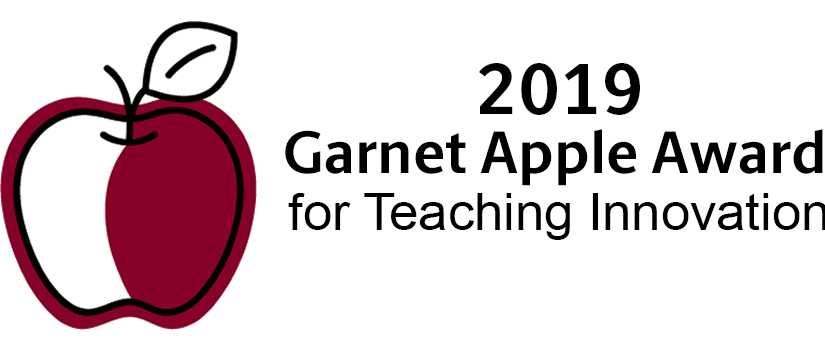Reg Bain and Jeff DudychaProfessor Professor What does a gene sound like when it mutates? That seemingly absurd question is one that biology and music students work together to answer in a course that combines big data and sound to let researchers “hear” a mutation. The course, created by Reginald Bain and Jeff Dudycha, is part of a National Science Foundation-funded research project the pair are working on that looks at the mutational variance of the transcriptome and the origins of phenotypic plasticity — just hum along if you don’t know the lyrics here. For the class, biology majors team up with composition students to complete projects using computer-generated music to represent spontaneous genetic mutations. “It was the best teaching experience I ever had,” says Bain. “We had no idea of what the students could reasonably accomplish,” Dudycha says. “Reg and I were flying by the seats of our pants.” But the student projects were so successful that one of the biology majors is extending her research to become her Honors College thesis. And Dudycha and Bain plan to offer the class again next year. Learn more about Reginald Bain and Jeff Dudycha in the UofSC News story The Sound of Genetics. |
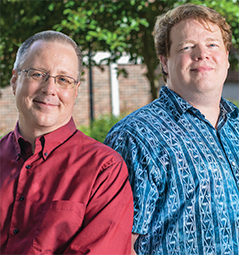 |
Karen EdwardsSenior instructor Karen Edwards enjoyed successful careers in retail management and as an attorney, but once she started teaching, she was hooked. What truly lit her fire as an educator was a weeklong active learning workshop she attended early in her career at the university. “I think I did a pretty good job that first year, but once I was tooled up it was like, ‘Bam! Now I know what to do!’ Teaching was fun before, but then it just became amazing.” But Edwards didn’t just enjoy teaching; she enjoyed the process of becoming a better teacher. She enjoyed the scholarship of learning, trying out new classroom strategies, informing her own efforts with research-based practices. Eventually, she would serve a two-year term as the Center for Teaching Excellence associate director for online learning pedagogy, a position that helped her hone her own classroom skills while also helping her colleagues better their own practice. “What’s more rewarding,” she asks, “than having somebody come back and say, ‘Thank you so much. That was a great idea you shared’?” Learn more about Karen Edwards in the UofSC News story High Expectations. |
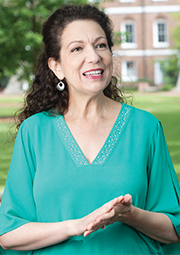 |
Ed GatzkeAssociate Professor Given his academic discipline, it’s probably no surprise that Ed Gatzke has worked
on engineering a method for improving the drop-fail-withdraw rate in a key course
for freshman engineering majors. Engineering Modeling and Numerical Methods is tough
because students can’t use a cookie-cutter approach to problem solving. Using a grant
from the Center for Teaching Excellence, Gatzke exchanged the traditional lecture
format for a flipped classroom model with students watching lectures online and using
class time for quizzes and solving problems with the professor. “I provide the students
with printed copies of the lecture notes with fill-in-the-blank components,” he says.
“Students have thanked me for that, saying it keeps them engaged while they watch
the lectures — it forces them to pay attention and it’s more active learning.” In
Chemical Process Dynamics and Control, Gatzke has introduced hands-on experiments
into the teaching mix that help students visualize the mathematical concepts they’re
trying to apply. “When they actually see the sensors and the valves moving Learn more about Ed Gatzke in the UofSC News story Engineering Better Student Performance. |
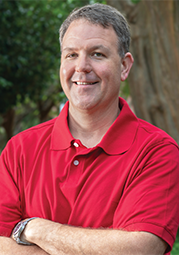 |
Bridget MillerAssistant Professor When Bridget Miller was in graduate school, a mentor opened her eyes to science education. Now she’s doing the same with future teachers in her classrooms. “My mentor was so excited and passionate about what he did, and that made me so excited and passionate about it, too. I try to do that with my students as well,” Miller says, who asks her students to reflect on their own experiences with science. “A lot come in with anxiety, saying, ‘I’m not good at science. I’m not good at math.’ I try to make sure that by the end of the class they’re not only feeling more comfortable with it, they’re excited about it.” Some of that comes from Miller’s enthusiasm for the topic; some is her ability to make topics like science less intimidating. “When I went through school, science was memorization of facts and terms. That’s not necessarily what science is. Little kids are inquisitive, and they ask a million questions. How do we help them explore?” Learn more about Bridget Miller in the UofSC News story Excitement in Science Lessons? Not iImpossible, Says Educator. |
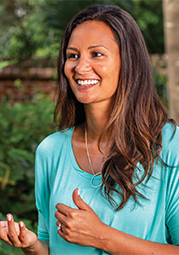 |
Thomas NathanielProfessor You won’t find Thomas Nathaniel’s clinical neuroscience students passively watching PowerPoint slides or their professor droning at a lectern. That’s because Nathaniel takes a different approach to learning. “My job is to help them navigate medical school by allowing them to play major roles in the learning process.” As director of the school’s clinical neuroscience module, he often puts students in small groups where they become major players in the learning process. He gives them the details on actual clinical cases involving neurodegenerative diseases and asks them to look for clinical solutions. “They learn together, and they learn from each other,” he says. “I am just a facilitator of their learning process.” Nathaniel is keenly interested in providing his students with a foundational understanding of various neurological diseases such as dementia, stroke and Alzheimer’s that his students will encounter in residency and beyond. “We want our students to understand where the problem is in the brain for each particular disease or condition. If you know where the problem is, then you have an idea where the medication can target it.” Learn more about Thomas Nathaniel in the UofSC News story A Guide on the Side. |
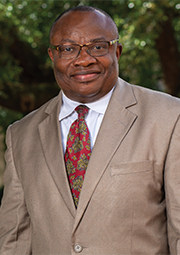 |
Laura SmithLecturer Students who successfully complete Laura Smith’s “Power Producing” course often find themselves in high demand when they’re ready to graduate. “The industry has caught wind of the fact that we are producing producers, and they’re coming to us and asking about the students who are coming out. Many of them get job offers before they graduate.” Part of what makes the students so marketable is the fact that their instructor has a wealth of television news experience under her belt and a hands-on teaching style that’s intensive and effective. “They have to get used to being critiqued in public because that’s the nature of what we do — the public is going to critique it, our bosses are going to critique it.” That crucible experience is challenging but necessary, Smith says, and it’s aided by the extensive feedback and one-on-one time she offers to each student. “For everything we hear about the death of journalism, it’s going through seismic shifts, but it’s really thriving and local journalism has never been more important. I’m very excited about teaching it here.” Learn more about Laura Smith in the UofSC News story Ready for the Real World. |
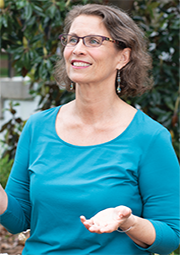 |
Center for Teaching Excellence
- SC.edu
- About
- Offices and Divisions
- Center for Teaching Excellence
- Faculty Recognition and Awards
- Garnet Apple Award for Teaching Innovation
- 2019 Garnet Apple Award Winners
